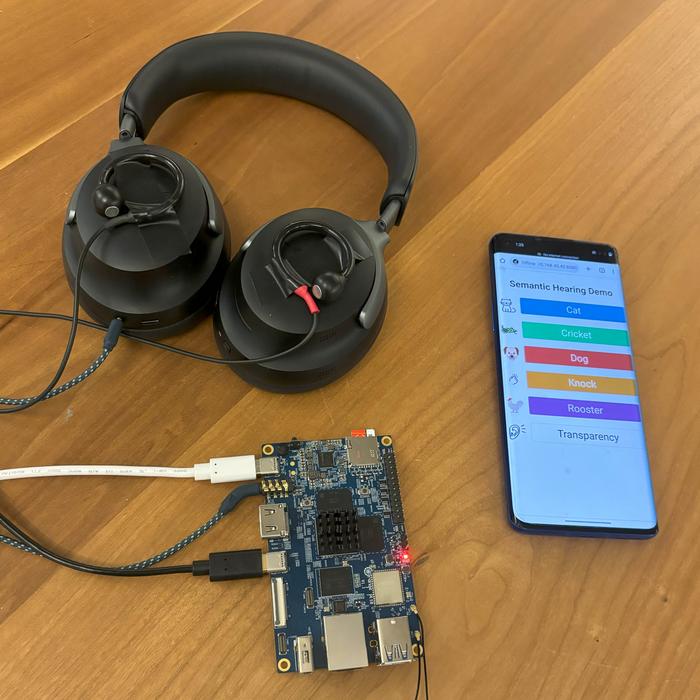Researchers Unravel Dietary Choices Through Stool DNA Analysis: No Questions Required
Scientists have made a remarkable advancement in dietary assessment through the analysis of stool metagenomic data. This innovative approach, known as MEDI (Metagenomic Estimation of Dietary Intake), has been developed at the Institute for Systems Biology (ISB) in Seattle. By detecting food-derived DNA in fecal samples, this method provides a new lens through which dietary […]


Scientists have made a remarkable advancement in dietary assessment through the analysis of stool metagenomic data. This innovative approach, known as MEDI (Metagenomic Estimation of Dietary Intake), has been developed at the Institute for Systems Biology (ISB) in Seattle. By detecting food-derived DNA in fecal samples, this method provides a new lens through which dietary intake can be estimated. The significance of this research cannot be overstated; it represents a paradigm shift in how dietary behaviors are tracked, especially in light of the limitations associated with traditional methods relying on self-reporting.
The conventional approach to dietary assessment typically involves food diaries and questionnaires that require participants to accurately recall their food intake. Not only are these methods time-consuming, but they are also subject to biases, with participants often misreporting their eating habits, consciously or unconsciously altering their responses to fit perceived social norms or to maintain privacy. MEDI addresses these pitfalls by utilizing a sophisticated analysis of the total DNA found in stool samples, which includes microbial, human, and food-derived components. This non-invasive strategy allows for a more objective view of dietary consumption, bridging the gap between scientific inquiry and practical application.
Lead researcher, Dr. Christian Diener, emphasized the challenges faced by nutrition research reliant on self-reported data. His insights underscore how difficult it can be for individuals to accurately recall specific food items consumed over varying time frames, with queries like how many strawberries or glasses of orange juice consumed becoming increasingly fraught with ambiguity. MEDI’s framework includes an extensive database containing information on over 400 distinct food items and more than 300 billion base pairs of genomic data. Such a robust informational foundation enables MEDI to accurately detect food intake patterns across diverse populations, including both infants and adults, while being validated in controlled feeding studies.
A central feature of MEDI involves its ability to correlate the profiles of food-derived DNA in stool samples to nutrient profiles based on an assumed 100-gram portion of food. This method offers insights into the nutritional value derived from specific dietary choices. Importantly, the nutrient profiles generated through MEDI align closely with findings from recent controlled feeding studies. This corroboration not only lends credibility to the method but also paves the way for researchers to explore how diverse diets contribute to overall health.
One of the most groundbreaking applications of MEDI lies in its ability to identify diet-related health risks without the need for food logs. In a substantial clinical cohort, the method successfully pinpointed dietary features that are linked to metabolic syndrome—a spectrum of conditions that increase the risk of heart disease, stroke, and diabetes. This capacity adds clinical relevance to the research, as it underscores how understanding one’s dietary intake can play a crucial role in mitigating health risks and creating more personalized nutritional strategies.
Dr. Sean Gibbons, a principal investigator at ISB, heralded the impact of this research as transformative for nutrition science. The ability to derive food-derived DNA signatures from stool samples means that researchers can analyze diet and microbiome composition in tandem. Such a comprehensive assessment tool could significantly enhance our existing knowledge regarding how dietary choices shape the human gut microbiome, influence individual responses to nutrition, and heighten disease risk.
The implications of this research extend beyond academia; they promise to engage healthcare professionals and individuals interested in their dietary health in ways previously thought unfeasible. For instance, researchers can employ MEDI to conduct large-scale epidemiological studies with greater accuracy, while healthcare providers can use the findings to inform patient care and nutritional guidance. Individuals could also leverage insights gained from their dietary intake profiles, leading to more informed decisions surrounding food consumption that could ultimately foster healthier lifestyles.
With continued refinement and the potential for widespread applicability, MEDI stands to revolutionize not just nutrition science, but also public health initiatives focused on improving dietary habits. The advent of MEDI is a testament to the power of innovation at the intersection of technology and health—enabling new avenues of understanding and effectively addressing the complex relationships between diet, microbiome health, and chronic diseases.
The study detailing these methodologies and findings has been published in the esteemed journal Nature Metabolism, marking an important milestone in the ongoing quest to better understand the nuanced connections between diet and health outcomes. As this field evolves, the integration of tools like MEDI will only become more pivotal in the landscape of nutritional science.
In summary, MEDI represents a significant leap forward in both diet tracking and understanding the intricate dynamics that dietary intake has on human health. The convergence of sophisticated DNA analysis and nutritional assessment heralds an exciting new chapter in how we perceive and interact with our dietary habits, potentially paving the way for healthier futures across generations.
Subject of Research: People
Article Title: Metagenomic estimation of dietary intake from human stool
News Publication Date: 18-Feb-2025
Web References: Nature Metabolism
References: DOI: 10.1038/s42255-025-01220-1
Image Credits: Not applicable
Keywords: Dietary assessment, stool metagenomics, MEDI, health risks, microbiome, nutrition science, DNA analysis, personalized nutrition, metabolic syndrome, Institute for Systems Biology.
Tags: advancements in nutritional sciencedietary assessment methodsfood-derived DNA detectioninnovative dietary research techniquesInstitute for Systems Biologylimitations of self-reported dietary habitsMedigenomic Estimation of Dietary Intakemicrobiome and diet connectionnon-invasive dietary trackingobjective dietary intake measurementparadigm shift in nutrition studiesstool metagenomic analysis
What's Your Reaction?

































